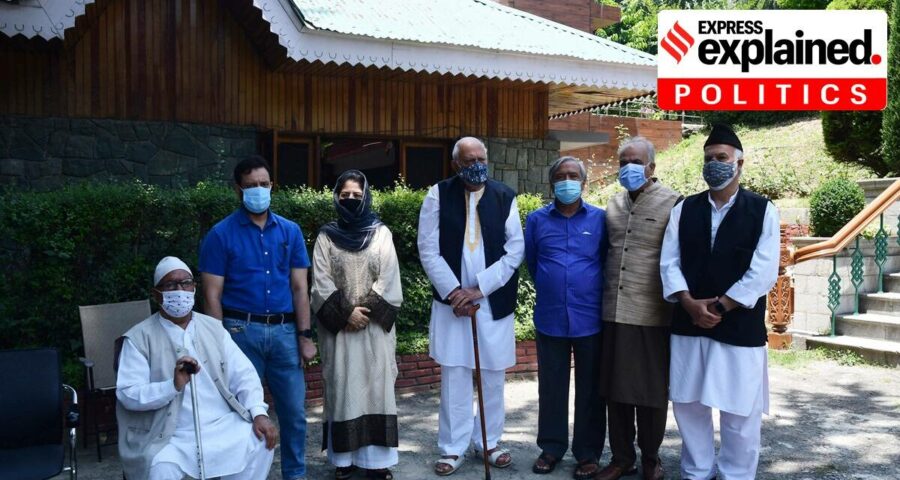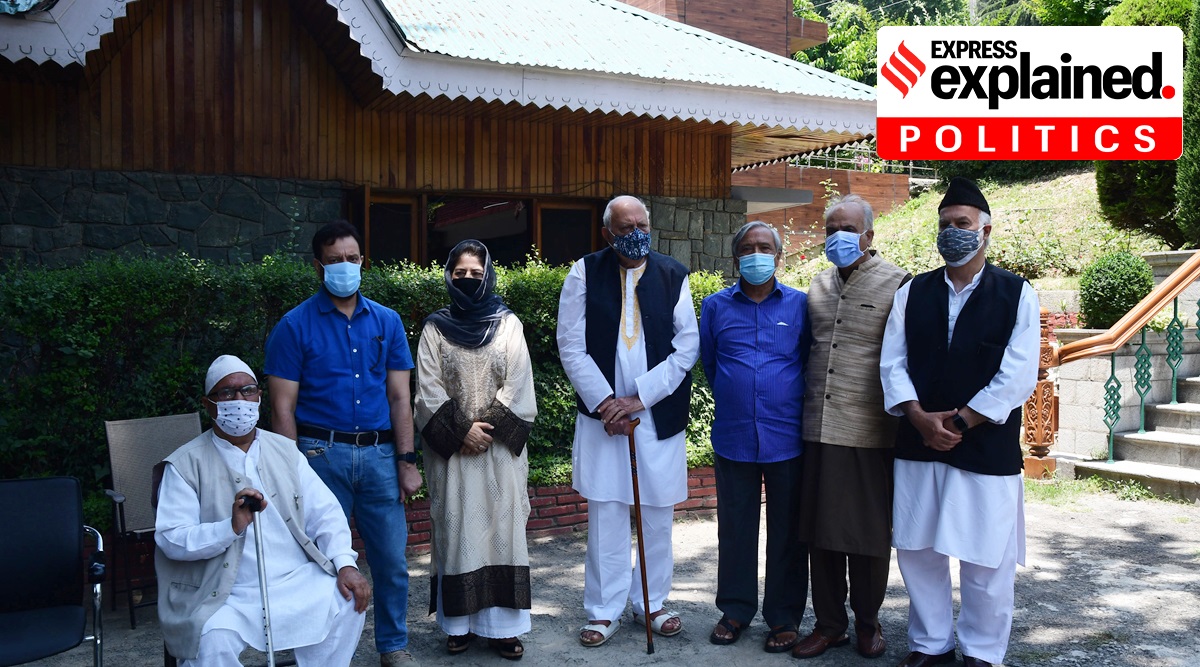More than a "change of heart," the refrain in Srinagar is that New Delhi’s move is shaped by political imperatives – from international to regional.
Behind the unanimous decision by the People’s Alliance for Gupkar Declaration (PAGD) to attend the Prime Minister’s meeting Thursday is a sharp debate within. On how to read the Centre’s apparent “walk back” after the abrogation of J&K’s special status two years ago and its constant “denigration” of the coalition since then.
More than a “change of heart,” the refrain in Srinagar is that New Delhi’s move is shaped by political imperatives – from international to regional.
“There is no immediate local compulsion for the Centre to make any amends to the policy unveiled and implemented since August 5,” said a senior PAGD leader who didn’t wish to be identified. “There’s been no scope for any disagreement… key leaders who disagreed were jailed and silenced. They took a unilateral decision based on their ideological project. The public outrage hasn’t hindered them until now.”
Newsletter | Click to get the day’s best explainers in your inbox
One thing that has changed, the leader said, is the external environment.
“China has entered the arena (Galwan and its aftermath); there has been a change of regime in the US whose troop withdrawal from Afghanistan is now a reality. There is every likelihood that the Taliban will be back in Kabul. The US needs a strong presence in Pakistan – all this calls for calming of tempers in South Asia,” said the leader. In effect, what happens in J&K, therefore, gets wider resonance.
In this context, he also referred to the Delhi-Islamabad back-channel facilitated by the United Arab Emirates and the subsequent series of reconciliatory signals from Pakistan: the unconditional ceasefire along the Line of Control – even as India and China were in a standoff along the LAC – to toning down of anti-India rhetoric by the Pakistani leadership.
Security agencies admit infiltration is minimal; besides the one Pak militant killed in Sopore Sunday, there has been no encounter involving non-local militants in eight months. Islamabad has also provided legislative relief to New Delhi in Kulbhushan Jadhav’s case.
However, on the ground, given the trust deficit, several fingers remain crossed.
Virtually the entire separatist leadership is behind bars; the meeting’s agenda is still unclear; there is concern that given how District Development Council elections didn’t break the political ice, New Delhi may be looking at elections to a “powerless Assembly” to provide democratic cover to its roadmap.
Said another PAGD leader: “There will be an elected CM, a local face in J&K while power remains with the unelected LG…The Centre wants to normalise the changes they brought in.”
Yet, there’s no mistaking the palpable sense of relief over the very fact that this meeting has been called.
“The way this government booked our leaders and workers including former Chief Ministers under the draconian Public Safety Act for months, an impression was created that New Delhi can run Kashmir without our participation. This meeting has made it clear that we may have been down but we are certainly not out,’’ said a senior PDP leader.
“There is a silver lining…The traditional political entities who have opposed New Delhi’s moves since abrogation are now being recognised by those who have humiliated them. For the first time, they are being taken on board”.
Said another leader: “Those among the administration who wouldn’t even take our calls because they thought we were irrelevant have started calling us. People who came out to support us during DDC polls, too, feel that we have value”.
More so, given that a meeting with the PM becomes a national platform.
“Since August 5, 2019, our rights, our voice has been snatched from us. This meeting gives us an opportunity to put forth our views and question the government’s unilateral moves,” said a senior PDP leader.
That, in itself, is a powerful incentive for the PAGD to join the meeting.
“Remember that we were publicly lied to by people holding important Constitutional positions,” said another senior leader. “Hours before August 5, the Governor himself had gone on record to say that nothing is going to happen. This is the first time since then that we have been taken on board.”
“It doesn’t matter why this meeting is happening…it is the responsibility of those who attend it to speak up,” said a PDP leader. “We are pro-India political parties. There is no bigger official forum to put out our viewpoint than this.”
No wonder many feel that what follows the meeting holds the key — how New Delhi responds to the views of those at the table will, inevitably, shape the next steps. Said a senior leader: “If this process is to move forward, New Delhi will have to take tangible steps to assuage the range of our concerns, from the prospect of demographic change to what needs reversal after August 5, 2019 (including restoration of statehood)”.
Source: Read Full Article



